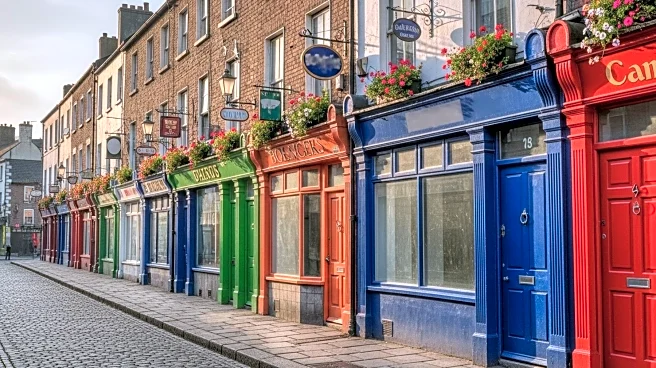What is the story about?
What's Happening?
Northern Ireland's high streets are experiencing significant challenges, with about 23% of non-domestic units unoccupied, according to the Department for Communities. This includes shops, pubs, offices, and more in towns with populations over 5,000. The rise in vacancies is attributed to factors such as the popularity of online shopping, increasing rents, parking charges, and higher utility bills. Local businesses are struggling to cope with these pressures, leading to closures and boarded-up buildings. Efforts are underway to address these issues, including a new bill in the Northern Ireland Assembly aimed at forcing property owners to repair derelict buildings.
Why It's Important?
The situation in Northern Ireland's high streets highlights broader economic challenges faced by local communities. The increasing number of vacant properties can lead to a decline in local economies, affecting employment and community vibrancy. The proposed Dilapidation Bill could provide a mechanism for revitalizing these areas by ensuring property owners maintain their buildings. However, the success of such measures will depend on effective collaboration between government entities and local stakeholders. The economic health of these towns is crucial for sustaining local businesses and services, which are vital for community well-being.
What's Next?
The Northern Ireland Assembly is considering the Dilapidation Bill, which, if passed, would empower councils to carry out repair works on derelict properties and recoup costs from landowners. This legislative effort aims to address the significant dereliction problem in towns like Larne. Additionally, local councils are working on regeneration grants to help landlords bring vacant properties back into use. The outcome of these initiatives will be critical in determining the future of Northern Ireland's high streets and their ability to attract businesses and consumers.















